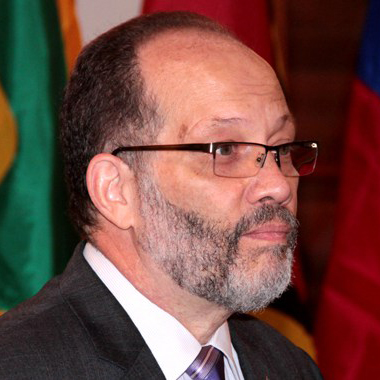
Irwin LaRocque
Feb 27 2018
CARICOM Secretary General, Irwin LaRocque yesterday called on the region to counteract the threat of crime and violence, noting its severe toll on society.
According to a CARICOM release, he made the call when he addressed the opening of the 29th InterSessional Meeting of the Conference of Heads of Government, in Port of Prince, Haiti.
“As we pool our resources and strategise to combat the damaging effects of climate change, we need to do so as well to counteract another threat to our societies… I refer to the effects of crime and violence”, he said.
LaRocque pointed to the toll on societies and said that the greatest impact was on families. “It was within that circle the battle against the scourge must begin”, he declared.
At the regional level, the Secretary-General suggested revisiting the CARICOM Crime and Security Strategy (CCSS) signed five years ago in Haiti to identify areas for improvement.
The release said that he also adverted to a number of legal instruments which he said were significant additions to the Community’s arsenal against trans-border crime. He pointed to the CARICOM Arrest Warrant Treaty and the Agreement on the Return or Sharing of Recovered Assets, stating that he looked forward to the “Treaty being ratified as soon as possible” and to the termination of the negotiations for the Agreement.
The release noted that the CARICOM Arrest Warrant Treaty simplifies the procedure of returning fugitives to the country where charges have been laid, while the Agreement on the Return or sharing of Recovered Assets provides a framework for the return or sharing of criminal assets which have been transferred to another jurisdiction.
The Secretary-General said that the Region has been working on a Counter-terrorism Strategy. He pointed to the very nature of the Community’s interconnection and its vulnerability, as a result.
“…an act of terrorism or violent extremism in one Member State will resonate and have repercussions through our Region, he said.
The Secretary-General underlined that the issue of crime and violence was a regional problem demanding a regional solution and that it required the full cooperation of all the national and regional agencies charged with the responsibility for addressing crime and security.
